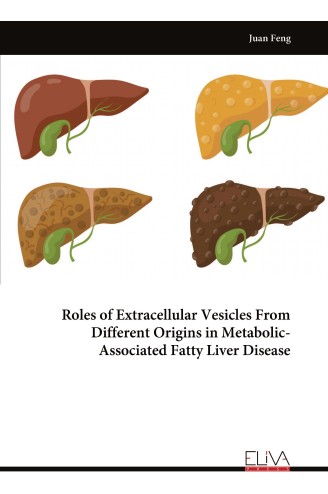Description
"Roles of Extracellular Vesicles from Different Origins in Metabolic-Associated Fatty Liver Disease: Progress and Perspectives" provides an in-depth exploration of the critical roles of extracellular vesicles (EVs) in metabolic-associated fatty liver disease (MAFLD) and their clinical translational potential. As the most common chronic liver disease globally, the progression of MAFLD may lead to liver fibrosis, cirrhosis, and even liver cancer, while effective non-invasive diagnostic and therapeutic methods remain lacking. This book offers the first systematic review of the multifaceted roles of EVs from host cells, plants, and gut microbiota in MAFLD: from serving as biomarkers for disease staging, to acting as therapeutic mediators that regulate lipid metabolism, inflammation, and fibrosis, and even as drug delivery vehicles and novel therapeutic targets. The authors provide a detailed analysis of how proteins, miRNAs, and lipids carried by EVs mediate intercellular communication, driving disease progression or alleviation, with a special emphasis on the groundbreaking findings related to EVs derived from mesenchymal stem cells (MSCs) and immune cells in reversing liver injury. Additionally, the protective functions of plant- and probiotic-derived EVs offer new perspectives for the prevention and treatment of MAFLD. By integrating cutting-edge research findings with the challenges of clinical translation, this book provides comprehensive insights for researchers, clinicians, and drug developers, helping to shape the development of the next generation of non-invasive diagnostic tools and precision therapies, thereby reshaping the management paradigm of MAFLD.




